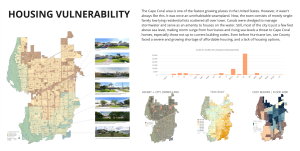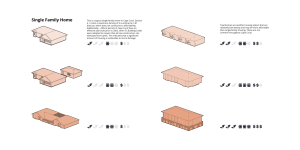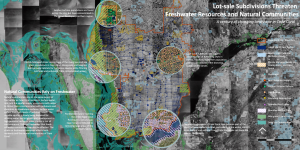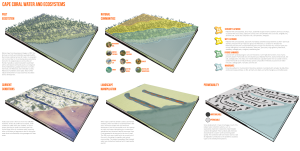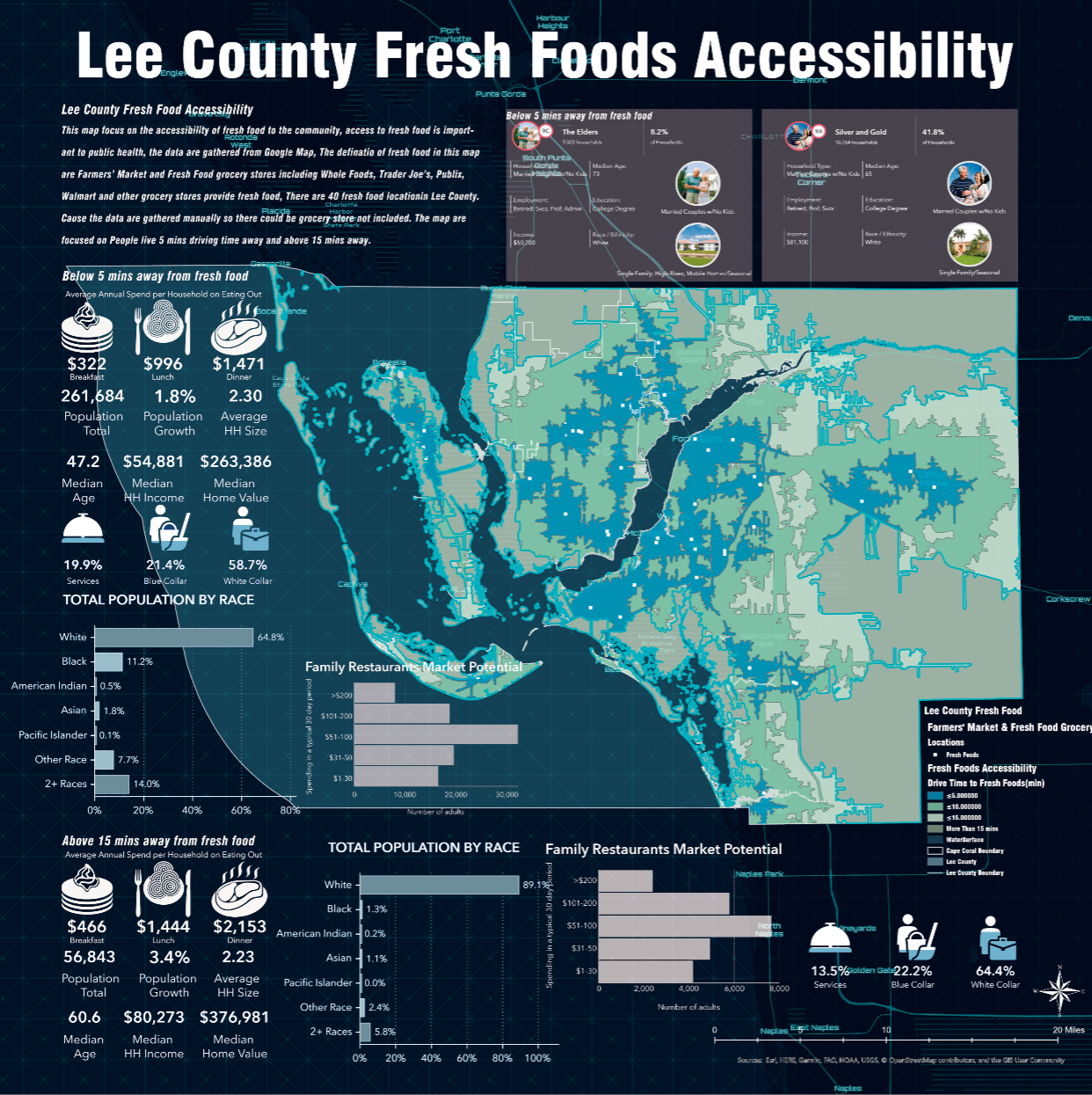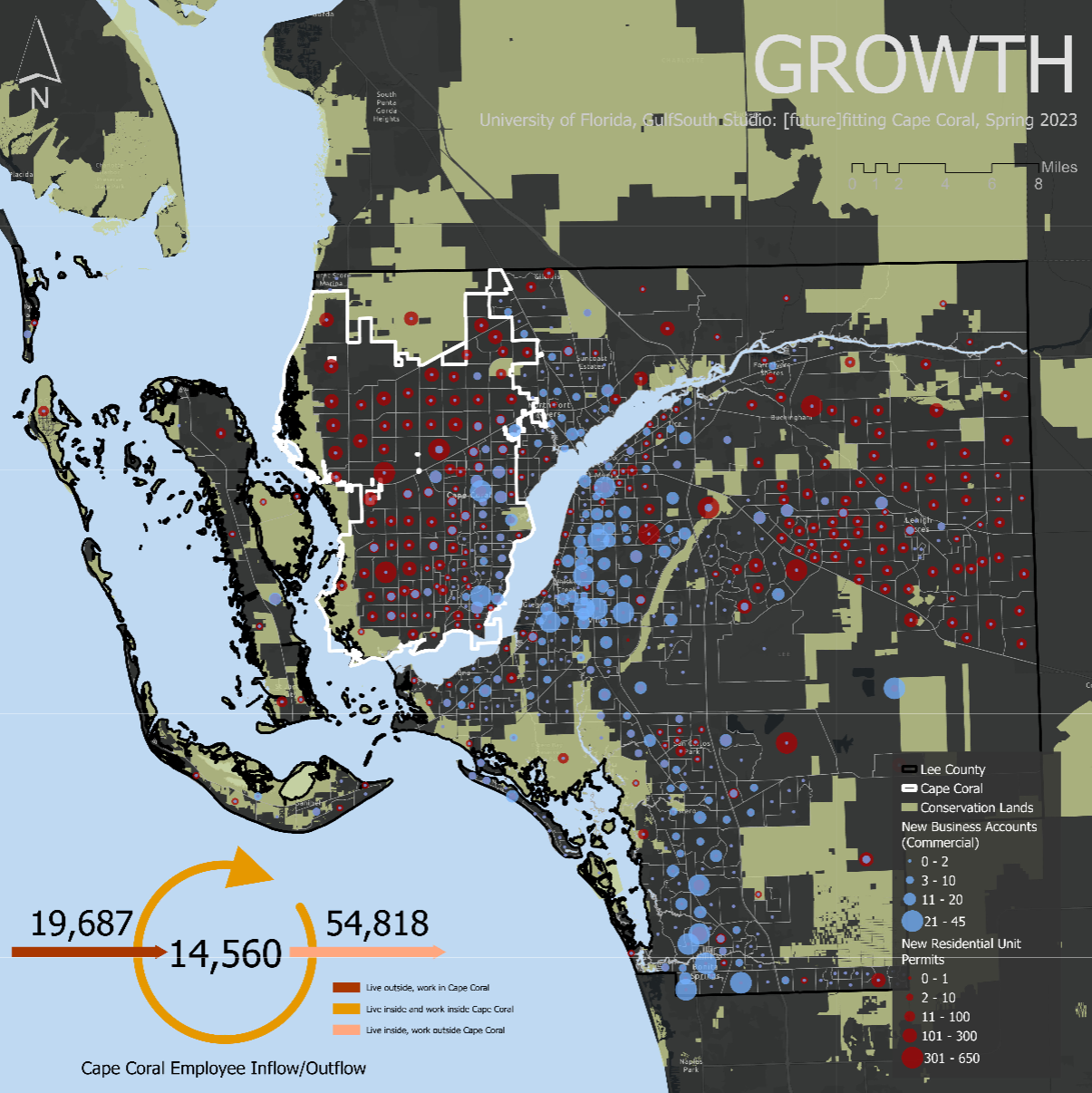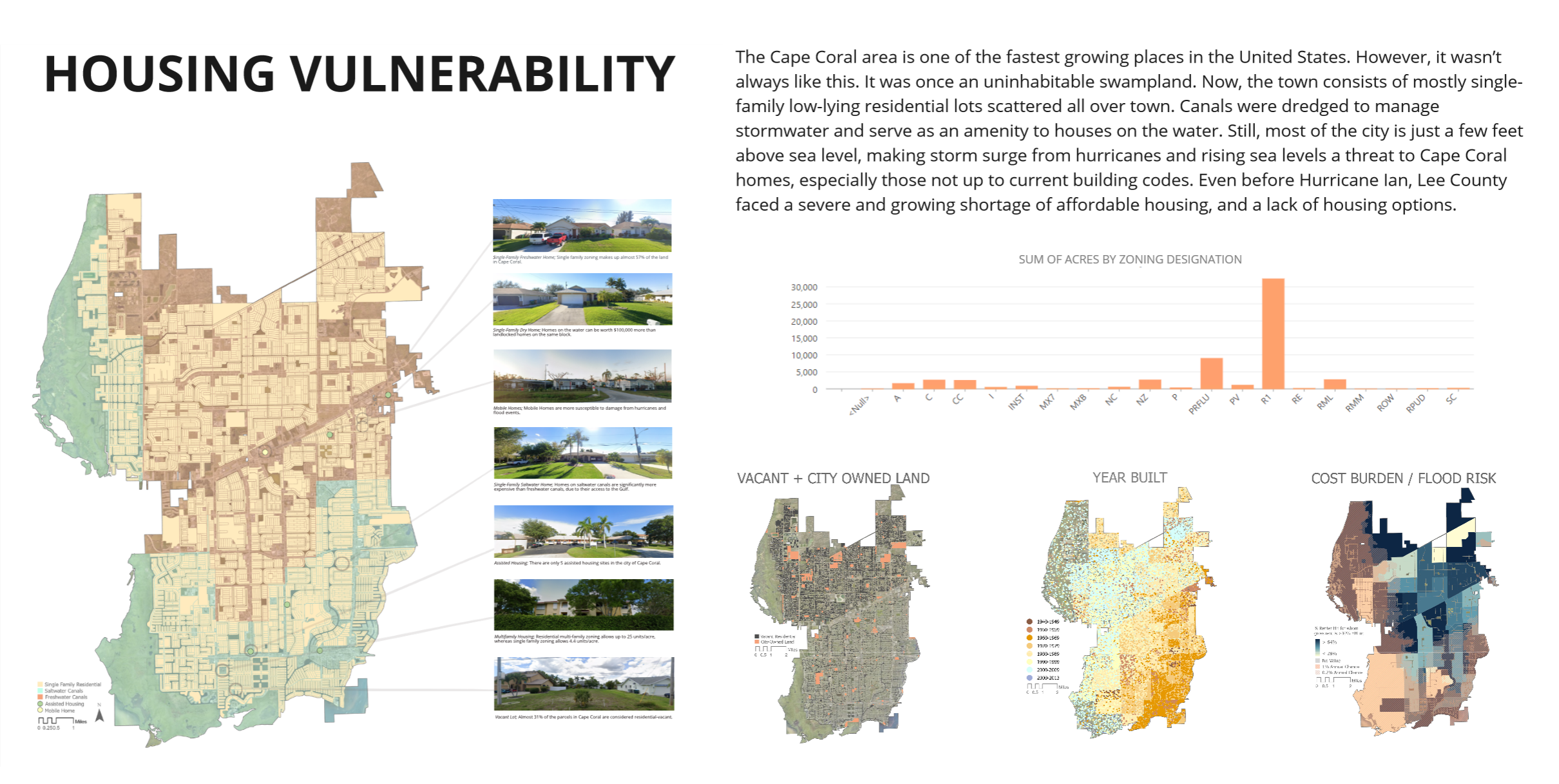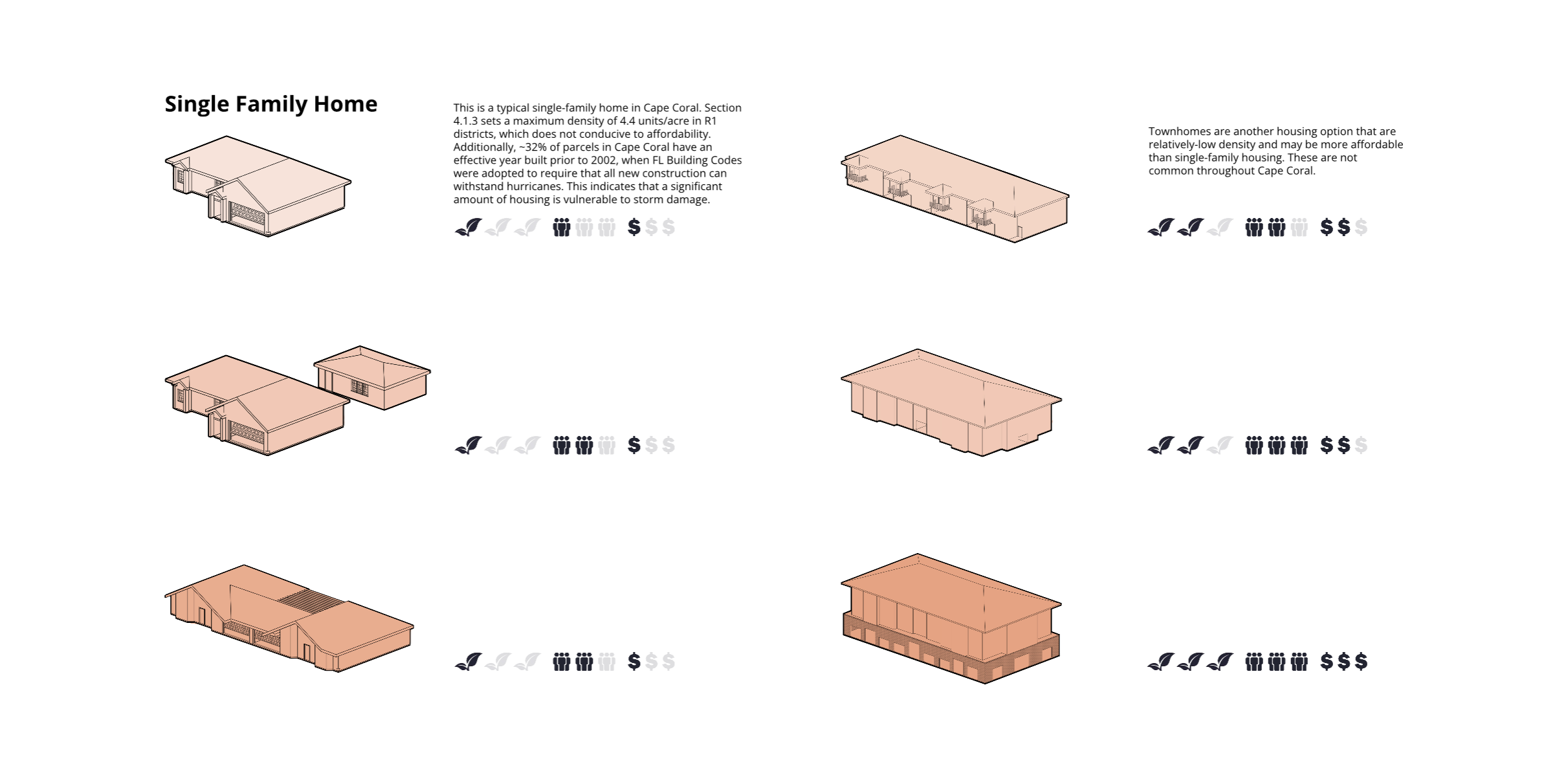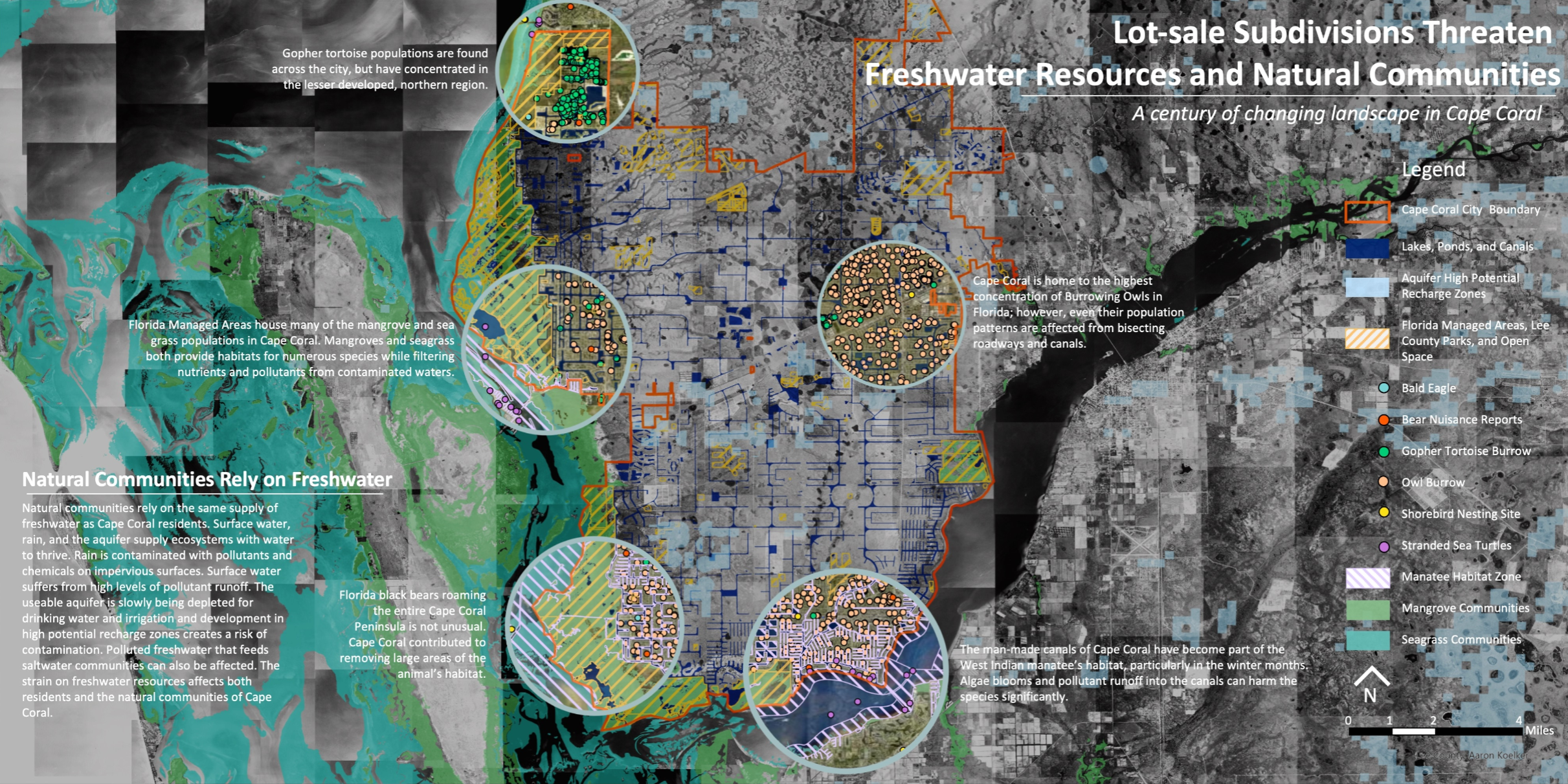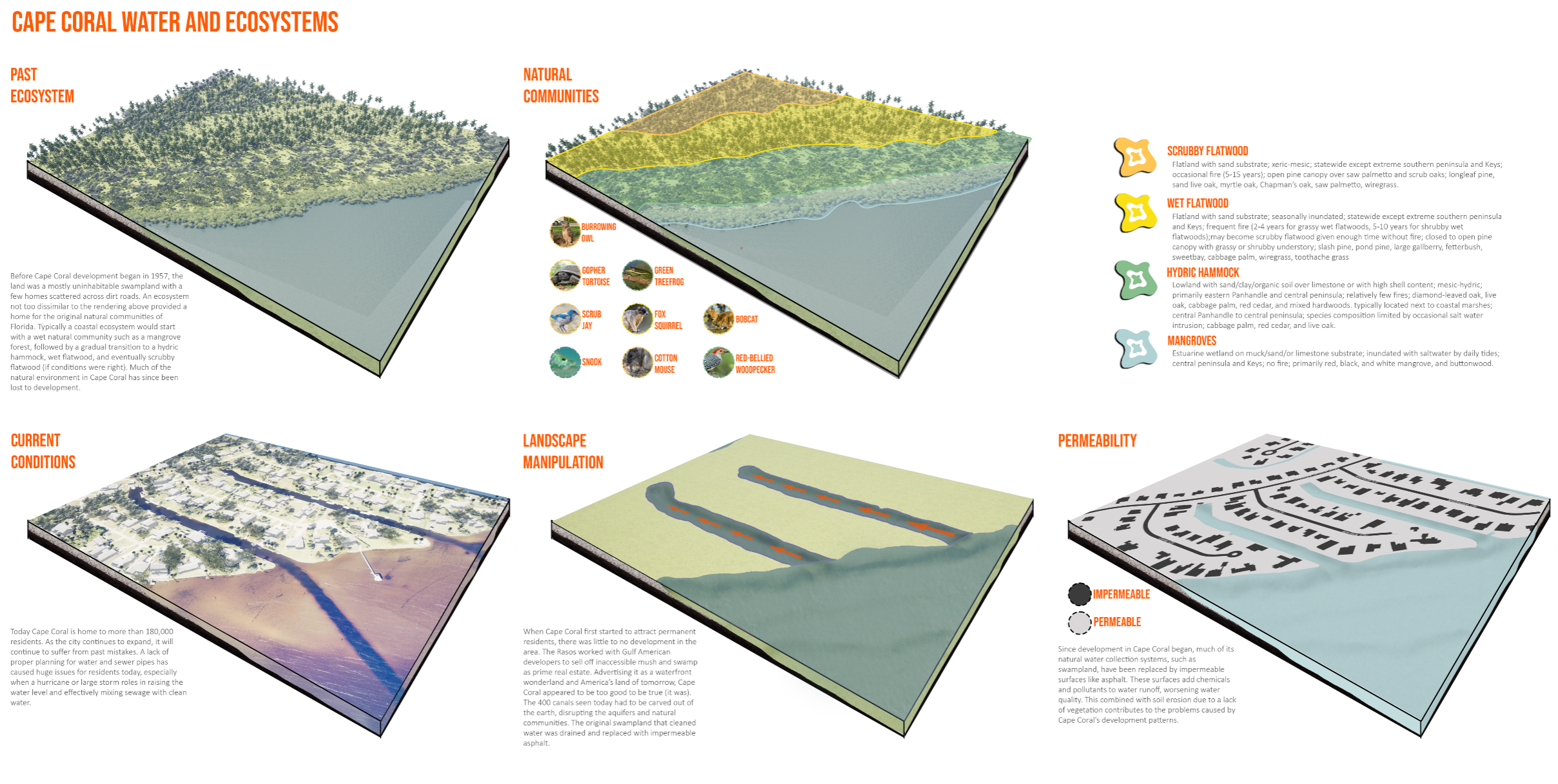Spring 2023 Super Studio
Super Studio: retro[future]fitting
Cape Coral
Course Overview
ARC 4323 – Advanced Architectural Design 8
LAA 6656c – Advanced Landscape Architectural Design Studio
URP 6341 – Urban Planning
Professors:
Jeff Carney, School of Architecture
Changjie Chen, Department of Urban and Regional Planning
Andrea Galinski, Department of Landscape Architecture
With support from:
Christian Calle Figueroa, Florida Institute of Built Environment Resilience
In October 2022, Hurricane Ian made landfall in Southwest Florida near Fort Myers. While devastating Florida’s southwest coast, Hurricane Ian impacted thousands across Florida with insured losses reaching $12.5 billion.[2] The storm laid waste to Fort Myers Beach and Sanibel Island before sending massive storm surge up the Caloosahatchee River and into the low lying back yards of thousands of residents in Cape Coral and the city of Ft. Meyers. However, the region’s vulnerability was building long before the storm. Lee County is the second-fastest growing county in Florida, as well as the ninth fastest growing county in the U.S (2021). For decades the region’s unabated pattern of sprawling development has provided low-density housing at tremendous cost to coastal ecosystems, civic institutions, and public infrastructure. Hurricane Ian exposed the fragility of this built environment but the foundations for catastrophe were constructed over generations.
Studio Purpose: Transforming Suburban Florida through Resiliency + Recovery
This design studio investigates the multi-scalar relationship between land-use patterns, architectural form, housing, infrastructure, water, and ecological conditions of the greater Ft. Meyers metropolitan area in the context of its vulnerability to disasters. Multi-disciplinary teams will focus on the city of Cape Coral, a poster child for Florida’s rampant post World War II suburban development, to further understand these systems at the scale of city and neighborhood. The studio will propose a series of “suburban retrofits” to envision radical urban transformation to achieve greater resilience, equity, and sustainability across a range of possible future conditions. Through a series of architectural designs, landscape infrastructures, planning and policy interventions, as well as multimedia tools to reimagine a transformed “civic core,” each team will visualize and communicate, at a range of scales, different possible futures for the study area, which will culminate in the creating of an interactive “digital twin” on the Unreal Engine (UE) platform.
Studio Methodology
The studio is unique for its emphasis on iterative ideation, drawing, making, testing, critiquing designs in collaborative teams. We will engage deeply and meaningfully with a challenging set of social and environmental conditions. We will bridge across the fields of architecture, landscape architecture, urban and regional planning, as well as journalism and sustainability to explore complex challenges from many perspectives. Projects will require site visits, site documentation, research, data collection, interviews, drawing, modeling, writing, and other explorations to guide you to take a position on a problem and develop a proposition for a more resilient city.
The course will take a deep dive into the Unreal Engine (UE) to form the basis of a “digital twin” and virtual platform for exploring and understanding the site, testing design ideas, and visualizing possible future conditions. Each discipline will contribute in different ways using tools that are familiar (such as Adobe Creative Suite, Rhino, AutoCad, ArcGIS, or others) but all students will use the UE in the process of building the digital twin.
[1] National Academies of Science Gulf Research Program, https://www.nationalacademies.org/news/2022/09/the-gulf-research-program-announces-support-for-regionally-focused-architectural-studio-design-courses-at-five-universities
[2] Florida Office of Insurance Regulation, 12/21/22, https://floir.com/home/ian
Regional Research: Understanding Regional Systems + Change Over Time
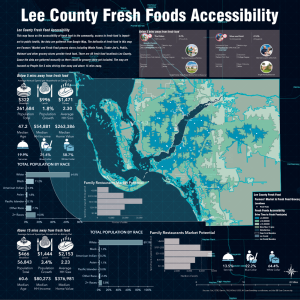
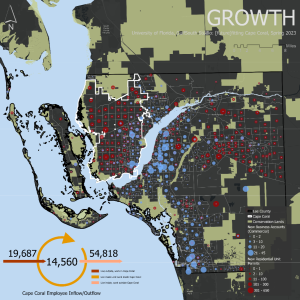
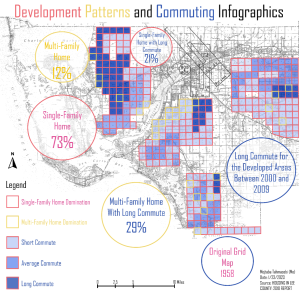
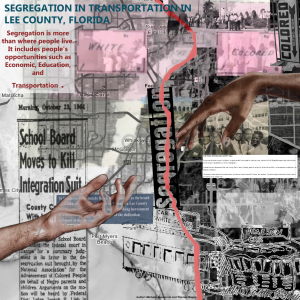
Cape Coral and the Making of the Florida City: City-Scale Research and Critique
